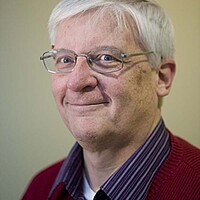Chris Marvin sees US veterans as assets, not victims
Loading...
America's veterans: Are they physically and mentally broken and in need of charity? Or are they strong, resourceful, and eager to keep serving others?
Chris Marvin says he thinks the first narrative, veterans as victims, gets too much play in the news media and in the minds of Americans, even in the thinking of US veterans themselves.
As the founder and managing director of Got Your 6 he aims to refocus attention on the skills, abilities, and potential of US veterans.
Yes, of course, veterans face challenges, sometimes significant ones. But they also know how to "rise to those occasions," Mr. Marvin says in a phone interview from Philadelphia, where veterans from four different nonprofit groups are helping build a Habitat for Humanity house. "We have examples like this across the country."
Most veterans who come home are "primed to give back and to make their country and their community a better place," says Marvin, who served as a Blackhawk helicopter pilot in Afghanistan.
His own road home was far from easy. He flew 40 missions near the Afghan-Pakistan border. "I was 25 years old, and I was in charge of $25 million worth of equipment and 25 enlisted men and officers in a really hostile combat zone," he says.
In 2004 he was severely wounded when his helicopter crashed. After four years of medical treatment and rehabilitation "I've mostly recovered," he says, but it took "a lot of patience to get through that ordeal." As a result of his service he was awarded the Bronze Star, the Meritorious Service Medal, and the Air Medal for meritorious achievement.
During his rehabilitation he began to notice how many Americans "were giving veterans more pity than respect," Marvin says. "I didn't like that." He thought "I might be in a wheelchair temporarily, but I have a lot to offer. I was trained to give back and be a leader in my community, and that was what I wanted to keep doing."
At one point he received an unsolicited check for $500 from a well-meaning nonprofit group. The group had assumed that since he was a wounded veteran he needed money.
"That check really rubbed me the wrong way," Marvin recalls. He gave the money to a local food bank, "people who needed that money more than I did."
Today 32 veterans groups are members of Got Your 6, which takes its name from military slang that means "I've got your back." The "6" in the group's name also refers to the "6 Pillars" the group advocates that can help veterans successful return to civilian life: jobs, education, housing, health, family, and leadership.
Most veterans aren't that tragic story that might be seen on a Sunday night TV drama, Marvin says. In fact, one of Got Your 6's roles is to work with Hollywood to create a more balanced picture of US vets.
That "I'm helpless" narrative can take hold of veterans, too. If you keep hearing that you're going to have a rough time coming out of the military, he says, "You start to believe it yourself."
Military service is in Marvin's blood. Two of his great-grandfathers served in World War I. His two grandfathers served in World War II and his father in the Vietnam War.
But Marvin feels that his generation of warriors represents an important difference: It was the first to fight in an extended war exclusively as volunteers, not draftees.
That makes the post 9/11 generation of 4.8 million servicemen and women already "prone to want to help, to volunteer," he says.
One positive that could come out of the wars in Iraq and Afghanistan would be an engaged population of engaged veterans "that is ready to make a difference here at home," he says.
Veterans are "looking for that chance to give back," Marvin says. "If our country fails to see that, it's actually our country that's missing out on a huge opportunity."
US veterans were trained to wage war. "But they were also trained to wage leadership, and team building, and problem solving," he says. "We were trained to wage good."
This Veterans Day, he hopes civilian Americans who meet a veteran will go beyond simply saying "thank you for your service" and instead "ask a second question."
Ask "what's next in your life? What are you doing now?" Marvin says. "And I think the answers that civilians would get … would be pretty surprising."
• To learn more visit www.gotyour6.org.








